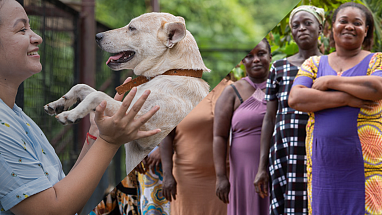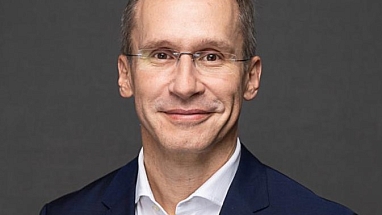Despite women being equally involved in cocoa farming, it is traditionally seen as a “man’s job.” This perception – fueled by gender norms and power relations – often means female farmers are not acknowledged as full members of farmers’ groups and face significant barriers in gaining access to the capital, training and other resources required for the successful operation of a cocoa farm. Adolescent girls in cocoa-growing families face unequal access to education, risk child marriage and experience a lack of female role models, given leadership roles are filled by men. Unpaid care work historically taken on by women further creates a system where they are disadvantaged.
At Mars, our aim is to help create a modern, inclusive and sustainable cocoa supply chain where everyone can thrive. Today’s cocoa supply chain does not deliver against this vision, a realization which led to our Cocoa for Generations strategy to positively impact cocoa farmers and cocoa farming communities.
We believe gender equality is a crucial driver of this strategy. The empowerment of women and girls in the cocoa supply chain will catalyze progress towards increasing incomes, protecting human rights and preserving forests. Our vision is one where cocoa farming is truly inclusive, where resources are offered in a non-discriminatory manner and accessible to all cocoa farmers regardless of gender, and where women and girls in cocoa farming communities can reach their full potential.
To achieve this, we aim to lead by example. From 2019 through 2022, we worked with the Royal Tropical Institute (KIT) to better understand on-the-ground realities for women and girls in cocoa growing communities in Côte d’Ivoire, Ghana and Indonesia, map them against the key sustainability challenges in cocoa production, and support the development of a gender strategy. The outcomes of the Resilience Journey(Opens a new window) have brought new perspective to identifying key barriers women face, as well as interventions to help confront them.
A gender transformative approach that addresses the root causes of inequalities - and places cocoa farming communities at the center – is needed for lasting change. This means ensuring our teams maintain a critical consciousness of gender inequalities and build gender expertise. It also means we drive change at cocoa’s first mile by partnering with suppliers to foster a gender-equal workforce. Finally, we will implement initiatives to further empower women and engage both men and boys as gender allies.
This approach expands upon the success and learnings from work we have been doing on the ground in cocoa farming communities. Building on a five-year collaboration to strengthen women’s social and economic empowerment in West African cocoa-growing communities, in 2020 we committed an additional $10 million investment to expand our Women for Change(Opens a new window) Village Savings and Loans Associations (VSLAs) model. We count over 80,000 members (and more than 75% are women) in more than 350 cocoa-growing communities across Ghana and Côte d’Ivoire today. This model includes essential building blocks that go beyond the standard foundation savings and loans activities(Opens a new window) and include access to finance, entrepreneurship and diversification of income, literacy training as well as curriculum that promotes early-childhood development and child protection by engaging parents and households. Unlocking opportunities for women has been a critical mission for our DOVE®/Galaxy® brand, and our collaboration with CARE has been a perfect match since the beginning.
At our Mars La Chola research farm in Ecuador, Women Grow Together, our collaboration with local NGO Acción Solidaria promotes inclusivity and diversity. More than 80 women so far have participated in trainings and capacity building programs to increase access to jobs in the cocoa sector. Our ambition is that 50% of our 2023 harvesting team is female.
Looking ahead, we know to continue to make progress towards fostering gender equality, it is essential to involve our brands, consumers, peers, suppliers and partners in transforming attitudes, beliefs and behaviors. Engagement from all stakeholders in the cocoa supply chain is necessary.
Our responsibility lies in leading the way, promoting change within our company and supply chain, starting conversations and taking a stand against inequality. By setting an example and promoting equal opportunities, we aim to inspire lasting positive change.
To read our full position on the gender transformative change needed in the cocoa supply chain, we invite you to read Pursuing Gender Equality within Cocoa for Generations(Opens a new window). For more on our approach to creating a more modern, inclusive and sustainable cocoa supply chain, please see our 2021 Cocoa for Generations report(Opens a new window).













